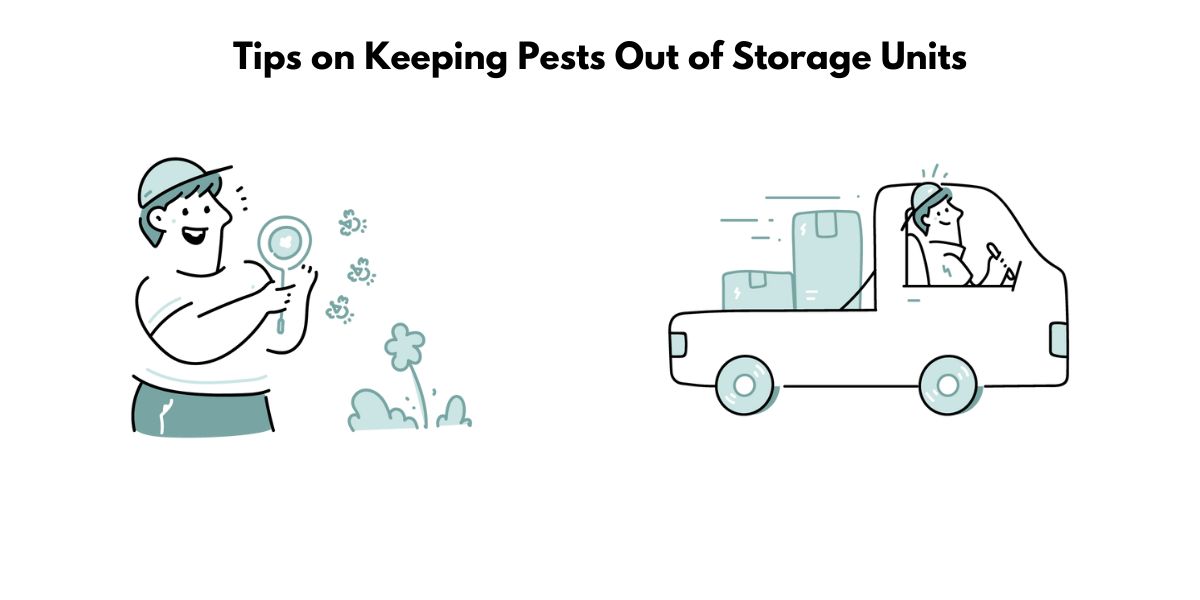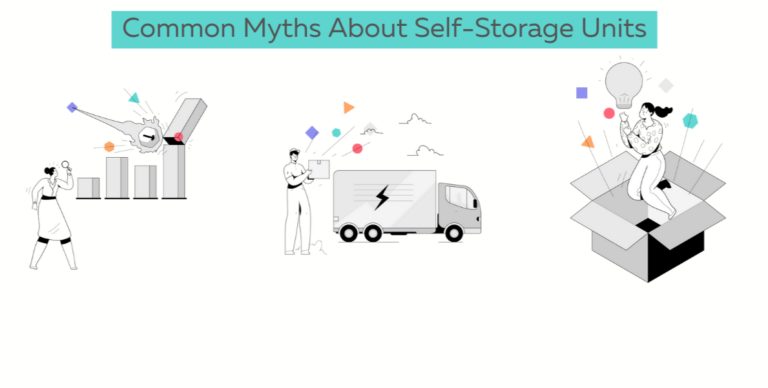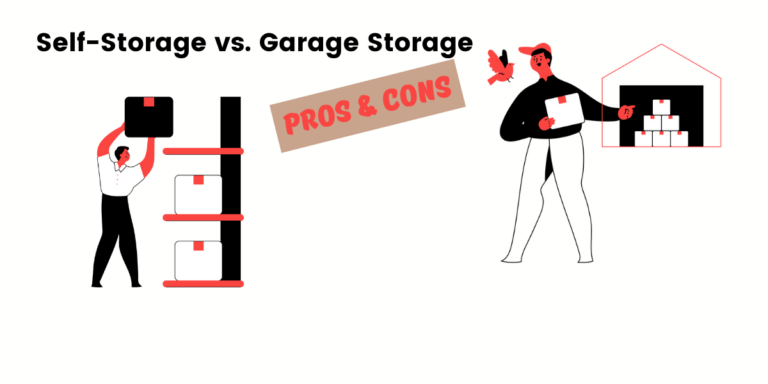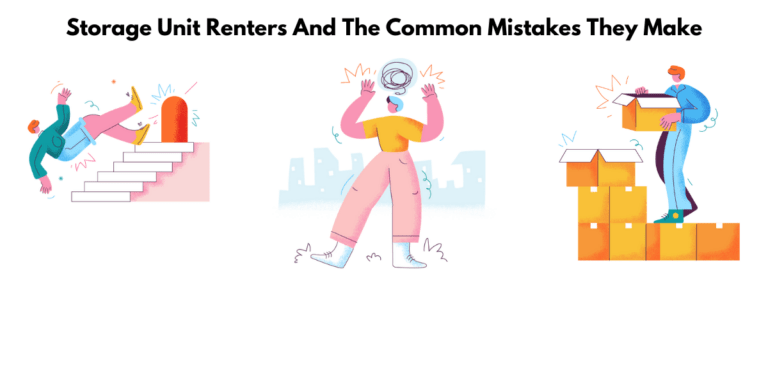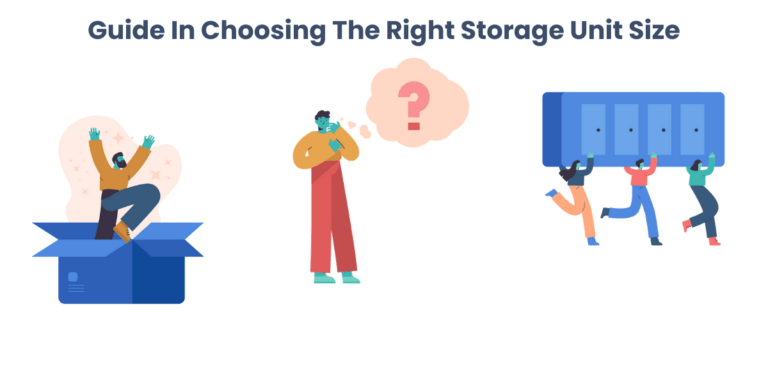Storage Unit Pest Control: How to keep pests out of your storage unit
Storage Unit Pest Control
When you put your belongings into a storage unit, you hope never to see them again until you need them. However, sometimes we inadvertently do while packing items into a storage unit can attract unwanted pests. This guide will teach you how to keep pests out of your storage unit and maintain a rodent-free environment.
Everyone needs to know how to keep pests and rodents out of storage units. Prevention is key, and if an infestation does occur, it must be taken care of as soon as possible. Otherwise, the problem will only get worse.
There are a few things you can do to help keep pests out of your storage unit. First, try to keep your unit clean and free of clutter. This will make it less appealing to critters. Second, make sure that the doors and windows are properly sealed so bugs and rodents can’t get in. Finally, you can use traps and poison to deter pests, but be careful not to contaminate your belongings.
If you’re looking for ways to keep pests like rats and other vermin out of your storage unit, it’s important to remember that the best way to keep mice away so is by following all the steps listed below. This includes removing food sources, storing items correctly, and choosing a facility that takes insect & pest control seriously.

Why storage unit pest control is important
Storage units should be airtight to prevent pests from entering. Unfortunately, storage units provide the perfect environment for pests – they are dark, warm, and often full of food. Storage unit pest control is a tedious and never-ending battle when you’re not careful about what you bring. Therefore, it is important to take measures to prevent pests from entering your storage unit in the first place. This includes keeping the unit clean and free of clutter, using storage unit pest control products, and being vigilant about what you store.
Storage units are becoming increasingly popular as a way to store valuable items. However, these storage units come with a few risks that should be considered. For example, pests can easily find their way into the unit and damage or destroy your belongings. Additionally, moisture and mold can cause long-term damage to your possessions. Therefore, mitigation measures like storage unit pest control and moisture mitigation are essential for keeping your stored belongings safe.
Storage units can become havens for pests if the necessary precautions aren’t taken. Pests can easily destroy valuable items in a storage unit, so it’s important to prevent their infiltration. You can keep pests out of your storage unit, including eliminating food and water sources, keeping the unit clean, and using storage unit pest control products.
Although it may seem like a waste of time, storing storage unit pest control supplies in your storage unit is important. If you ever have to deal with an infestation, you’ll be glad to have the supplies. Additionally, cover up any openings and cracks in the unit’s structure with weather stripping and caulk; this will keep rodents and other pests out of the unit, prolonging its lifespan by as much as 10 years or more
Storage unit pest control is important to protect your belongings from damage
Pests are a natural byproduct of storing items in storage units. While not all pests cause damage, it is important to have a plan to protect your belongings just in case they do. Storage policies must be properly insured, and you should always have an accurate inventory of what is inside your unit. This will help you quickly identify any damages caused by pests and file a claim.
In addition to having a solid tenant insurance policy, storage unit pest control units help protect and secure your belongings. These units work to reduce the risk of damages caused by pests, saving you time and money in the long run. Climate-controlled storage units are more important for musical instruments and antiques than active or responsive storage unit pest control units. Still, all storage units should have some form of protection against pests.
Storage unit pest control measures should be taken before storing furniture or items
Wrapping fabrics and furniture in plastic will help protect them from rodents, moths, and other bugs. This is an important step before storing any items in your storage unit.
Keeping items higher up will deter pests from infiltrating your system. Try to keep the most susceptible items – such as food – off the ground and away from potential invaders.
All kitchen appliances should be stored in plastic bags or wrapped for storage. This will help protect them from pests, but it will also keep them clean during storage. In addition, food residue is an invitation to bugs and other hungry creatures into your unit, so try not to store anything with food residue.
The storage unit shouldn’t be used for storing human foods like cereal boxes or pasta sauce jars – these are a major attractant for pests. However, you can store dried goods like rice or flour without issue.
Pests like to eat food, and they can be found in storage units if measures aren’t taken beforehand to prevent their entry. Pests can become a serious issue in certain scenarios, especially if you have leftovers from a restaurant or diner still in the unit when you’re packing it up. Many pests also carry diseases that could be harmful to your family members or pets. Therefore, it’s important to take storage unit pest control measures seriously before storing any furniture or items.

What to do if you find pests in your storage unit
If you find pests in your storage unit, you can take a few steps to get rid of them. Cockroaches, for example, can be eliminated by using an over-the-counter insecticide spray. On the other hand, bed bugs may be more difficult to get rid of and may require the help of a professional exterminator. Therefore, it is important to identify the type of pest you are dealing with before taking any action.
First and foremost, pests are attracted to warmth and moisture. So if you store anything that gives off those signals- like food or cardboard- you’re asking for pests to invade your storage unit. Furthermore, pests can live for up to 15 years, so it’s important not to handle them. That way, they won’t hitch a ride on your clothes and come home with you.
Use mothballs to keep away moths and other pests
Mothballs are a popular way to keep away moths and other pests. They come in various shapes and sizes, but all work the same way: the smell of naphthalene scares away bugs. However, mothballs are not effective against mice. They might even attract them! If you’re having trouble with pests in your storage unit or home, try using extra traps instead. You can also buy peppermint oil or cloves, which will keep pests at bay without mothballs. If you have to use mothballs, wear a mask to avoid breathing in the fumes.

How to prevent future infestations
You can do a few key things to keep your unit a pest proof and rodent proof storage. First, make sure to keep the area clean and free of debris. This includes sweeping and vacuuming regularly and taking out the trash often. Second, inspect the unit before renting it to ensure no trash or food will attract pests. Finally, if there is any sign of an infestation, take action immediately to eliminate the pests.
In addition, cockroaches are attracted to unsanitary conditions. Therefore, ensure your storage unit is inspected for leaks, water management problems, and other sanitation issues. This will help prevent any future infestations.
Cockroaches are one of the most common storage unit pests. They can enter through tiny holes and cracks, so it’s important to repair any damage and seal any potential entryways. Cockroaches are also very crafty, so keep your storage unit clean and free of food scraps or other debris that could attract them.
Pests can be a real problem in storage units, as they can quickly infest an entire unit and cause damage to the stored items. However, there are some things that you can do to prevent future infestations. One of the most important is to seal any potential entry points. If pests can’t get into the unit, they won’t set up camp inside. Additionally, it’s important to clean out your items regularly. Pests like to take up residence in dirty, cluttered areas, so by keeping things clean you make it less likely that they will be able to thrive.
To prevent any future pest infestations in your storage unit, you should take precautionary steps. Firstly, before storing any clothes, wash them thoroughly. Secondly, clean your appliances and containers well, and don’t leave any food remnants inside. Finally, regularly check the unit for any signs of pests and take prompt action if necessary.
Empty cardboard boxes can attract pests like roaches, and since they’re often left lying around in storage units, it’s important to avoid them. You should also store your belongings off the floor to prevent any pests from getting in through the cracks in the floor or walls of the building/home.
Check for pests before moving in
When you’re looking for a storage unit, it’s important to make sure that you check for pests before moving your belongings in. This is because the presence of green bugs and other pests indicates that the unit is infested, leading to serious damage to your property. Store owners need to prioritize safety, reliability, and price to serve their customers properly. Bugs or insects are a sign of an infestation, but the cleanliness levels are still a good indication of how well it’s being kept up and maintained. If you’re looking for advice on preventing future infestations, don’t hesitate to ask the storage manager – they’ll be able to provide valuable information on pest prevention policies.
Do not store food inside a storage unit
One of the main ways to prevent an infestation is not storing food inside a storage unit. Crumbs and residual food can attract insects and pests, leading them to invade your unit. Vacuum or wipe down kitchen jars and pans for crumbs and residual food. If you are moving out of your storage unit, make sure the surrounding unit is broom swept, and you leave no crumbs. Pack your food items into a new storage unit before moving out if insects want to take note. Elevating valuables helps protect them from pests. Using natural remedies is just as effective as commercial solutions.
Pack items in plastic totes with airtight lids
When packing your belongings, it is important to use airtight containers. This will help prevent unwanted pests from entering and infesting your items. Packaging materials such as:
- Plastic totes with airtight lids
- New moving boxes that are less likely to have holes or punctures
- Sealing tape
It will help keep your possessions safe and pest free. In addition, using storage units can also be a potential source of the infestation, so it is important to take precautions when selecting a unit.
Keep items raised a couple of inches off the ground
One way to help prevent pests from making homes in your stuff is to elevate your items. This can be done easily by using small pallets or blocks to raise goods a few inches. Mice and bugs are less likely to live on elevated, so keeping your belongings clean and tidy will help discourage them from settling in.
Cover mattresses and upholstered furniture
One of the most common ways bed bugs get into storage units is through mattresses. To prevent an infestation, it’s important to use a plastic mattress cover specifically designed for keeping pests out of your home or unit.
In addition, furniture should be covered to keep pests out. This can be done by using fabric and making sure that furniture is wrapped tightly.
The most effective way to prevent future infestations is by using breathable materials. This will allow the air to circulate and help deter pest populations.
Other steps include keeping couches and chairs covered in a material that allows for airflow and wrapping furniture with plastic or cloth, which can cause moisture buildup underneath the furnishings.
To prevent future infestations, wrap any belongings and keep them as low to the ground as possible. Bed bugs are less likely to crawl up if they have no surface. Keep couches, plush chairs, and anything else that can be chewed on to deter pest populations.
Use natural pest deterrents
You have a few options if you’re looking for an environmentally-friendly way to deter pests from your storage unit. Some deterrents, like mothballs, can ruin nearby units. Others, like professional storage unit pest control services, can be costly. There are also natural ways to prevent pests that do not require pesticides.
The best way to prevent pests is to use DampRid. This product removes unwanted scents from the storage unit and deters pests from coming near. You can also place cedar cubes in a bowl on a plate as an all-natural solution for fleas and rodents. Cedar is a natural repellent that will keep these critters at bay without harming them.
Visit your storage unit regularly
It’s important to visit your storage unit regularly, especially if you live in a bug-infested area. Always check for bug damage and take action immediately if you find any. In addition, ensure to inspect your storage unit every other month for any new infestation. If you find an infestation, make sure that management has handled it promptly and helped them as much as possible.
Choose a facility that cares about storage unit pest control
When looking for a storage facility, it is important to choose one that takes storage unit pest control seriously. A poorly taken care of facility has eroded seals and is easily accessed by pests. In addition, facilities should regularly have well-maintained landscaping and be serviced by storage unit pest control providers.
If the storage unit is not clean, it will likely attract pests such as rodents, cockroaches, and bed bugs. These pests can cause considerable damage and spread diseases if they are not eliminated quickly.
Make sure to keep a close eye on doors, access areas, and garbage areas. Rodents are among the most notorious pests and can cause significant damage if left unchecked. In addition, rats and mice like to build their nests in the dark, out-of-the-way spaces in an untouched storage unit.
Cockroaches are insidious pests that can cause many different illnesses. They breed rapidly and thrive in unsanitary conditions. Properly equipped facilities will prevent infestation by implementing rodent exclusion methods and using cockroach baits.
Bed bugs can be eliminated by using traps or physical methods; however, they become increasingly resistant to pesticides. Storage rental companies can provide valuable information about pests and pest prevention. They will talk to you about your concerns if they are safe and reasonable (e.g., if you are concerned about insects, they might give you tips on preventing future infestations). In addition, storage rental companies will not disclose what happens when something is damaged, or an infestation occurs if you have a reasonable concern (e.g., returning your rented items).
Make sure your insurance policy covers damage from rodents or pests
Many storage facilities will require you to have stored property tenant insurance. It’s important to ensure that your policy covers damage from rodents or pests. If it doesn’t, you may need to purchase additional coverage.
- Storage Unit Pest Control: How to keep pests out of your storage unit - August 24, 2022
- A List of the Most Common Mistakes a Storage Renter Commits - June 11, 2022
- Discussing Collectibles Storage: How to store your precious collector’s items in storage safely - December 15, 2021

